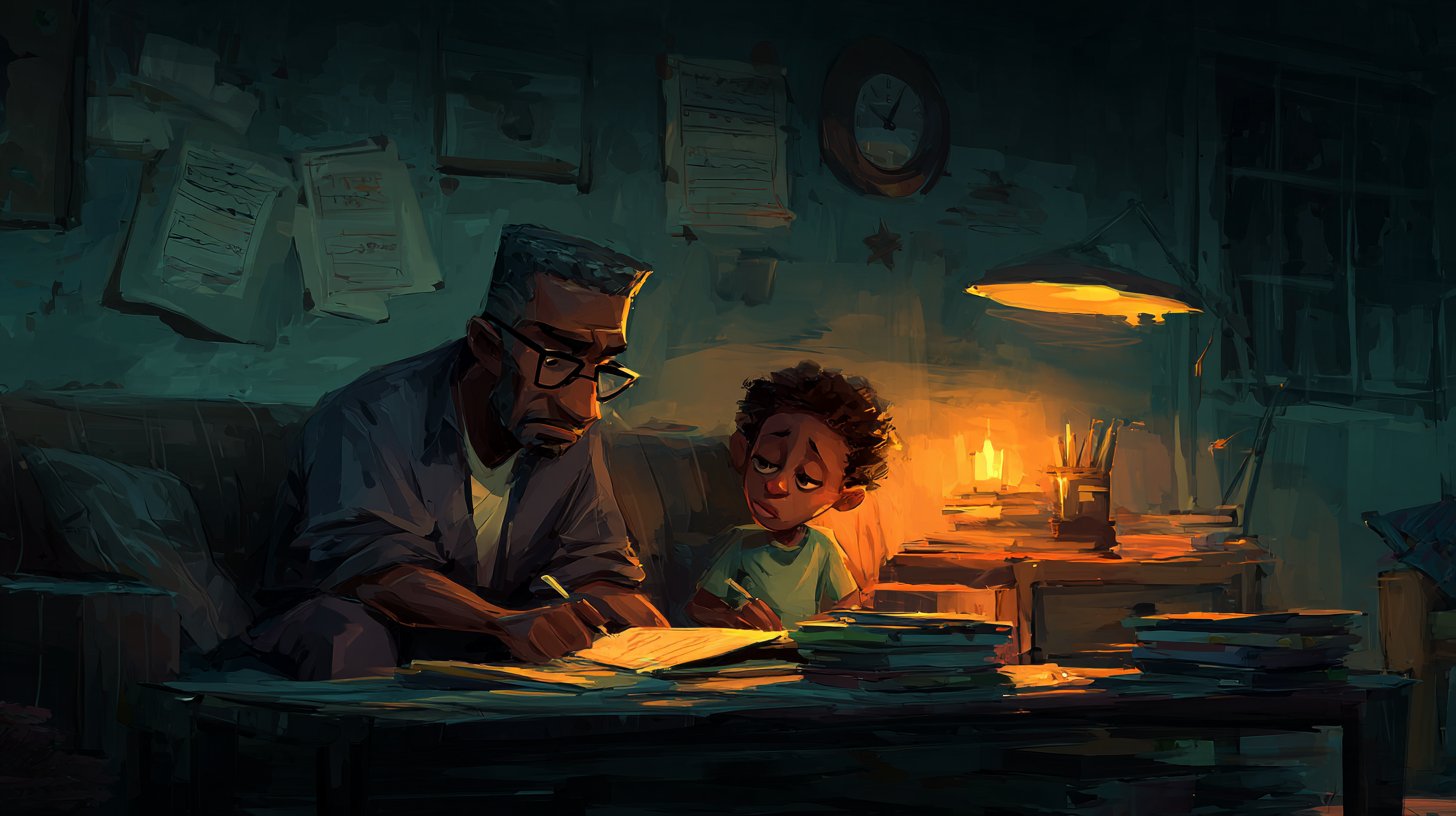Critical habits that burden children

In parenting, there are many aspects that should be reconsidered. Three central themes are: self-confidence, emotional security, and communication. These aspects can often be negatively influenced by toxic habits of parents.
Let’s first define what we understand by toxic habits. They are behaviors or attitudes that are unconsciously displayed by parents towards their children that can harm the children's self-esteem and quality of life in the long run. Many parents often do not realize that their behavior can unintentionally cause harm. In this article, I would like to highlight 12 toxic habits that you may have observed in yourself or around you.
Excessive control
Parents who are too controlling not only convey a sense of insecurity to their children but also the feeling that they cannot make their own decisions. Children often feel constrained, and this feeling can lead to difficulties in making independent decisions later on. Instead of controlling them in all areas of life, you should give your children space and encourage them to gather their own experiences and learn from them.

Another commonly encountered behavior is that parents constantly compare their children. Whether unconsciously with siblings or consciously with friends – this comparison can generate feelings of inadequacy. Children have the right to their own identity and their own strengths. Sit down with your child and discuss what they do well and what strengths they see in themselves without making comparisons.
Lack of emotional support
Another major problem is when parents do not talk openly about their emotions or do not acknowledge their children's emotions. Children learn from you how to deal with their own feelings. A child whose feelings are not taken seriously will struggle to understand and express their emotions later in relationships. Try to have an open ear for your children's worries and wishes to create a space where they feel safe.

Ignoring feelings can also lead children to build a wall around themselves that prevents them from forming deeper interpersonal relationships. Show them that it is okay to experience vulnerable moments and that they can feel safe talking about their emotions.
Unrealistic expectations
Do not place unrealistic expectations on your children that often stem from your own desires or disappointments. These expectations can lead children to feel pressure and fear of failure. It is important to understand that every child is different and must find their own path. Give them the freedom to discover what they love and where their strengths lie. Contrary to what is often conveyed, not all children are destined to be successful in specific areas.

Especially in today’s society, comparisons and competition are often ubiquitous. Show your child that the process and learning from what they enjoy doing is just as important as the final result. By doing so, you may create a positive and supportive environment.
In summary, many toxic habits of parents, although often unconscious, can have significant effects on the development and well-being of their children. It is important to become aware of these behaviors and actively work to change them. Parenting is not a perfect process, and everyone makes mistakes, but the most important thing is to learn from them and strengthen the relationship with your child. By creating a positive and supportive environment, you give your child the best conditions for healthy emotional and psychological development.
Finally, we should all be reminded that we do not have to be perfect parents. It is about being attentive and willing to improve. Every child is unique and requires different approaches. Take the time to listen and learn what your child really needs. The ultimately most important goal should always be that your child feels safe, loved, and valued.


